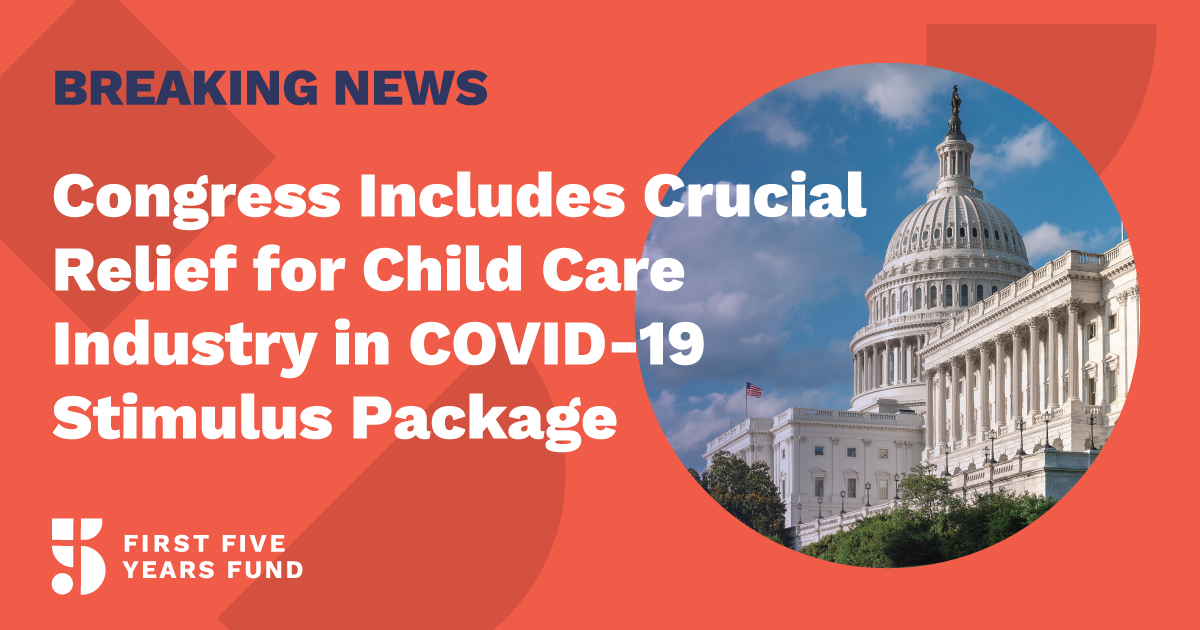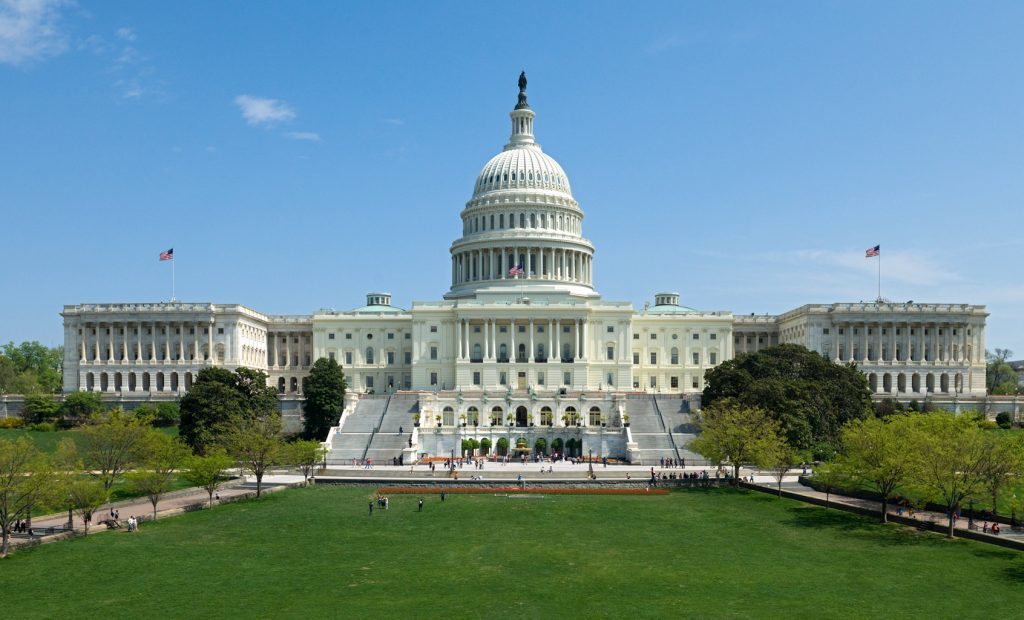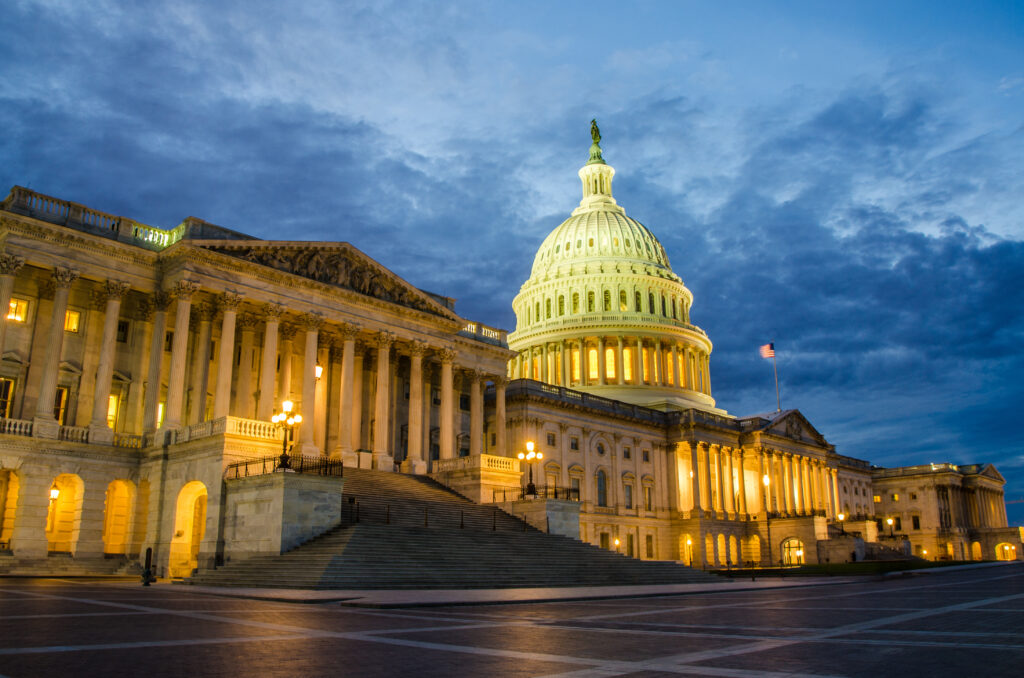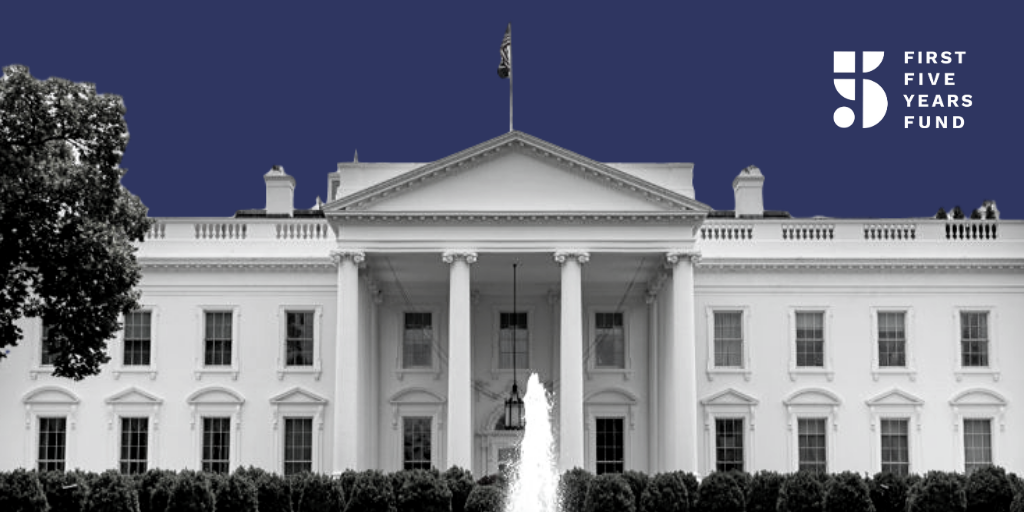BREAKING: Congress Includes Crucial Relief for Child Care Industry in COVID-19 Stimulus Package

UPDATE: On March 27, 2020, the Coronavirus Aid, Relief and Economic Security Act – or CARES Act – was passed by the House, and the bill now heads to the president’s desk to be signed into law.
WASHINGTON – Late Wednesday night, the Senate passed a sweeping economic stimulus bill to provide relief to America’s families, small businesses, and major industries as they struggle with the effects of the COVID-19 crisis. Included throughout the package is significant relief for the nation’s child care industry, which has been hit with widespread layoffs and closures as a result of catastrophic drops in enrollment, as well as direct support to states and families who are grappling with the child care realities of this pandemic. Details about the support made available in the bill, which now heads to the House for final passage before being signed into law, are available online here.
Statement from First Five Years Fund (FFYF) Executive Director Sarah Rittling: “Child care providers are on the front lines of this pandemic, caring for the children of first responders, hospital workers, and so many others who are working throughout this difficult time. Without access to reliable child care, these brave Americans would not be able to continue doing their life-saving work. We are witnessing firsthand what many have known for a long time; the child care industry is the backbone of the American labor force. If it collapses, the nation’s economic recovery after this horrific pandemic will be all the more difficult and may never recover. Congress has taken an important step to provide immediate relief to child care businesses, and much work remains to ensure providers can quickly access the support included in this stimulus bill.
“It is commendable that both the House and Senate proposals included significant relief for child care providers, and we are grateful to the many bipartisan lawmakers who made this industry a priority in a bill that touches virtually every aspect of the American economy, including the dire needs of our healthcare system. FFYF will now work with our partners to ensure the nation’s child care businesses have the information and resources they need to take advantage of the generous relief provided by Congress, so that quality child care remains available for working families now and into the future. America’s children and families will need the child care industry to be operating at full force when the time comes for the nation to get back to work.”
The following provisions from the stimulus package will help stabilize the child care industry:
- Both non-profit and for-profit child care providers with less than 500 employees will be eligible to apply for small business loans of which 8 weeks of payroll, mortgage/rent & utility payments, are eligible for loan forgiveness. And federal loan assistance is available for midsize and large child care providers through the Treasury’s Exchange Stabilization Act;
- $3.5 billion in additional funding for the Child Care Development Block Grant Program (CCDBG) to provide child care assistance to health care sector employees, emergency responders, sanitation workers, and other workers deemed essential during the response to the coronavirus;
- An additional $20 billion in funding for the State Fiscal Stabilization Fund, which allows states to award funds to early childhood education programs and services;
- $750 million in Head Start funding to help them respond to COVID-19-related needs of children and families.
Last week, FFYF launched an online action urging Americans to contact their lawmakers about the importance of including the child care industry in any federal stimulus package. FFYF’s campaign generated over 65,000 emails to lawmakers from constituents in all 50 states and the District of Columbia, calling for significant financial and regulatory relief for child care providers. In addition, FFYF led a coalition of the nation’s leading child advocacy organizations in a coordinated effort laying out specific recommendations with justification for Congress to provide support to the child care industry.
FFYF will continue to lead on this effort and will launch a nationwide effort to ensure every child care provider across the country has access to the tools and information they need to take advantage of the relief once this economic stimulus package is signed into law.
New research from the Center for American Progress (CAP) finds that almost 5 million health care workers—around 29 percent of the entire workforce—have children that are too young to be left home alone as schools and child care programs close. This research does not account for the employees in other industries that are essential to keeping the country running through this crisis, including sanitation workers, the food and beverage industry, and more—a large percentage of which rely on child care to be able to go to work. At the same time, with broad swaths of the American workforce staying home amid efforts to prevent the spread of COVID-19, thousands of child care providers across the country are not earning enough income to keep their businesses running.
According to a survey of over 6,000 child care providers conducted by the National Association for the Education of Young Children (NAEYC) last week, 30% say they would not survive a closure of more than two weeks without significant public investment and support, and 25% say they don’t know how long they could close and still re-open without support.
The First Five Years Fund is the leading bipartisan federal advocacy organization working to ensure all children from birth through age five have equal access to affordable, comprehensive, high-quality care and education to support their healthy development and help them achieve their full potential in school and life. FFYF seeks to expand federal support for all early learning and care opportunities that are high-quality and focused first on serving those children most-at-risk. http://www.ffyf.org
###
Subscribe to FFYF First Look
Every morning, FFYF reports on the latest child care & early learning news from across the country. Subscribe and take 5 minutes to know what's happening in early childhood education.



